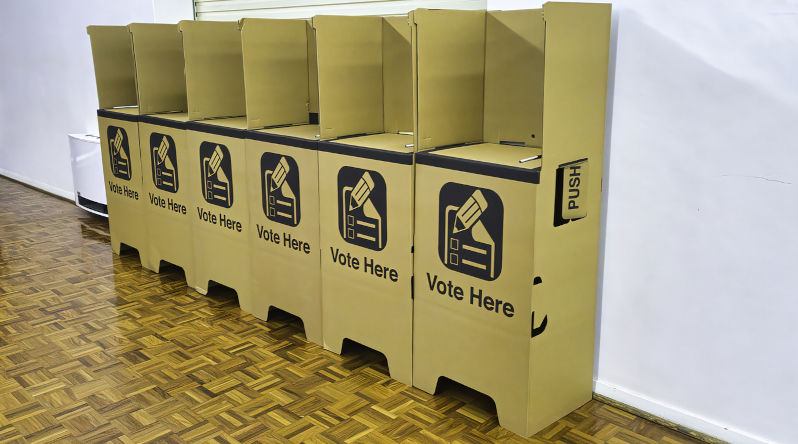Active Muslim participation in our democracy should be encouraged and celebrated, not feared.
The moment Muslim community leaders find their voice and it becomes clear that Australian Muslim voters can no longer be ignored, the usual warnings emerge from the usual suspects: fear and backlash.
In recent weeks, we witnessed right-wing populist scaremongering about the rise of ‘identity politics’ and accusing Muslims of engaging in ‘sectarianism’ and posing a threat to our ‘social cohesion’. Once again, the alarm bells go off at the sight of an ‘awakened’ Muslim electorate proactively organising to address issues they feel strongly about and to maximise their collective voting power in a political system where they feel largely ignored.
Such fear mongering around recent Muslim political activism echoes long-standing insecurities amongst a certain cohort within Australian society regarding the political mobilisation of minority groups. The portrayal of multicultural and multifaith communities as the ‘other’ is a narrative that has been recycled many times. It reflects an inability to accept that Muslims, like any other group, have legitimate concerns and aspirations that deserve to be addressed within the democratic process.
What we are witnessing is a new wave of Australians exercising their democratic rights on issues they are passionate about. Demonising minority communities as seemingly challenging the status quo and destabilising threats to established narratives has become an all too familiar tactic driven by political expediency.
This pertains to a much larger, deeper, and older issue that has roots in the colonial perception of the ‘other.’ ‘Successful integration’ or ‘successful multiculturalism’ does not equate to political compliance and passivity among new and emerging communities, as some might have us believe.
The past 10 months of pro-Palestinian and anti-war activism have clearly demonstrated that grassroots movements, which have gained significant momentum and confidence, shouldn’t have to wait for a sanitised window of opportunity from those in positions of power and influence to engage politically.
A timely reminder: minority communities do not need permission from the self-appointed guardians of Western democracy to engage in Australian politics. Muslim voters should not be lectured on when and how to participate in the public sphere, nor should they feel compelled to apologise for actively engaging with our electoral system.
Framing their political participation as a threat and attempting to undermine the legitimacy of their voices risks alienating a sizeable portion of the electorate, who are feeling disenfranchised and disillusioned with a political system that seems intent on keeping them marginalised.
We are, and must be, better than this. Embracing the political participation of all our citizens, both newly emerging and established, should be seen as a sign of a maturing democracy. Diverse voices enrich our political landscape, ensuring better policymaking and legislation, which ultimately strengthens our social cohesion.
The recent Muslim political activism, especially among youth and women, should be seen as a positive result of Australia’s longstanding youth engagement, women’s leadership, and social cohesion programs, which have emphasised civic involvement and participation.
Victoria, in particular, has been at the forefront of leading and funding numerous successful grass roots community programs over the past 40 years, consistently supported by both Labor and Liberal governments.
The Islamic Council of Victoria (ICV), along with many other multicultural and multifaith groups, has proudly partnered with various government departments and agencies to run these initiatives, achieving extraordinary outcomes and success stories. These efforts should be seen as a valuable return on social investment and a proud milestone towards achieving a cohesive society.
It is regrettable that such positive outcomes continue to face resistance from certain political figures and media outlets, who resort to the simplistic alarmism of sectarian and identity politics. These warnings are not only unfounded but also harmful, as they perpetuate stereotypes and can undermine vital public policies and social services.
It is essential to challenge these narratives and highlight the contributions Muslim Australians have made and can further make to the political and social fabric of the country. Their involvement in the democratic process is a testament to their commitment to the nation’s future and the effectiveness of Australia’s social policies.
The media, in particular, have a crucial role to play in this regard. Rather than amplifying divisive rhetoric, journalists and commentators should strive to foster a more constructive public discourse. As Australia evolves as a nation, we all have a role to play in contributing to the vibrant tapestry of our modern democracy.

Nail Aykan
Nail Aykan is a respected leader within multicultural and multifaith communities with a strong record of active engagement in the social cohesion space. He served as the Executive Director of the Islamic Council of Victoria (ICV) for eight years.
